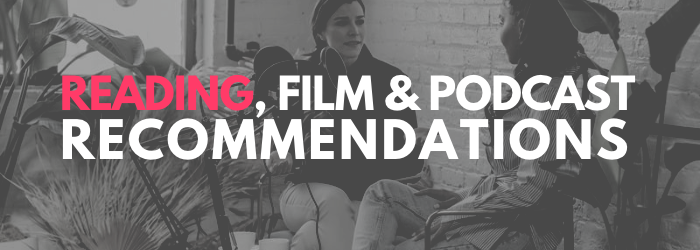Reading, Film & Podcast Recommendations: April
Our team has selected books and webinars that they found interesting, engaging and informative to enjoy this month.
Read
The Earth Transformed, Peter Frankopan
The book explores the interactions between human societies and the environment, with a particular focus on how closely the environment has shaped human civilisation. Impressive in its sweeping scope. I haven’t yet finished; I have a sneaking suspicion the news at the end isn’t going to be great…
Recommended by Alex Bramble
Monocle’s The Foreign Desk, “The Good Friday Agreement 25 years on”
A critical look back at how the Good Friday Agreement was achieved, the intended and unintended consequences of the Agreement on political and social dynamics since, and some remaining questions regarding pathways to reconciliation and collaborative governance.
Recommended by Alex Shoebridge
The Swarm by Frank Schätzing
Having already reached the status of a classic in Germany, this novel makes you think about what the consequences of the destruction of the earth’s ecological balance could look like further down the road. Thrilling and disturbing.
Recommended by Philip Poppelreuter
Transformative Scenario Planning, Adam Kahane
Sometimes instead of just adapting to the future, we need to take a step back, create a diverse group of people from across the whole spectrum, and start imagining different scenarios of what could (not should) happen. In that slow process, new ideas can be planted and eventually grown that can help transform systems. Some interesting anecdotes and good examples as well.
Recommended by Rainer Gude
Listen
Queen’s University Belfast’s Agreement 25 conference
To mark the 25th anniversary of the Belfast/Good Friday Agreement (B/GFA), Queen’s University Belfast hosted a three-day conference under four themes:
celebrating the achievements of those who signed the 1998 Belfast/Good Friday Agreement (GFA), recognising the role of women in peace building, amplifying the voice of the next generation of young leaders, and creating a dialogue that proposes and considers social and economic solutions to the major issues that will impact the region over the next 25 years. On Day 2, the one event “Media in Conflict and Peace” looked at the role journalism played from the Troubles to the present day.
Recommended by Wairimu Wanjau

